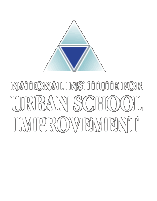
---

---

---

---

---

---

|
 |
 |
NIUSI
part of the Education Reform Networks
Special Education
-
An Oral Versus a Standard Administration of a Large-Scale Mathematics Test
Students in Grades 4, 5, 7, and 8 (N=1,343) took part in a study to determine whether students with learning disabilities (LD) would benefit from having mathematics test items read aloud. Two 30-item alternate forms of a large-scale multiple-choice mathematics test were administered.
-
Blending Cultural Anthropology and Multicultural Education: Team Teaching in a Teacher Education Program
Describes how a large urban university and K-6 classroom teachers collaborated to design an undergraduate teacher education program in elementary and special education, creatively combining subject matter curriculum with educational issues and pedagogy to better prepare teachers to succeed in diverse urban schools. The result was the team-taught Liberal Studies Seminar in Anthropology.
-
Collaborative Research in Inclusive Classrooms: An Investigation with Reflections by Teachers and Researchers
Participatory Research and Development (PR&D) is a means of integrating research and practice by linking the historically separate communities of university research practice as one learning community. More specificially, PR&D is designed to impact teacher thinking and instruction, student performance, as well as school and university systems and culture.
-
Democratic Dispositions and Cultural Competency: Ingredients for School Renewal
This article argues that the current school reform movement of high-stakes testing is misguided. It advocates that democratic dispositions and cultural competency be included in the major goals of schooling and proposes that the purpose of schooling should be determined through public deliberation within diverse communities.
-
Foreign Language Instruction: Tips for Accommodating Hard-of-Hearing and Deaf Students
This training module presents information, both specific and general, about including postsecondary students with deafness and hearing impairments in foreign language classes. First, a variety of reasons for making sure that students with hearing impairments are not excluded from foreign languages are covered, including the need for improving attitudes toward language learning, improving English skills, and encouraging a heightened understanding of different cultures.
-
Growing Partnerships for Rural Special Education. Conference Proceedings (San Diego, California, March 29-31, 2001).
The 2001 conference proceedings of the American Council on Rural Special Education (ACRES) contains 62 papers and summaries of presentations concerned with issues in rural special education. The papers are presented in 12 categories: impacting governmental policy, at risk, collaborative education models, early childhood, gifted, multicultural, parents and families, preservice and inservice teacher education, technology, transition, and other.
-
Special Education or Racial Segregation: Understanding Variation in the Representation of Black Students in Educable Mentally Handicapped Programs
The disproportionate representation of black students in special education programs has been well documented, yet explanations for the overrepresentation are rare. Using a unique sample of U.S.
-
Students With Disabilities and Paraprofessional Supports: Benefits, Balance, and Band-Aids
This article discusses the increasing use of paraprofessionals in special education and addresses the following five areas: the role of paraprofessionals, the impact of the proximity of paraprofessionals on students with disabilities, the impact of paraprofessionals on teacher engagement, the importance of professional recognition, and strategies for improving paraprofessional support.
-
T.R. v. Kingwood Township Board of Education
In the 3rd Circuit, the IEP must provide more than "trivial or, de minimus, educational benefit" but is not required to "maximize the potential of handicapped children." The IEP must provide "significant learning" and "meaningful educational benefit." Parents requested reimbursement for private school tuition and support services, claiming that the school district's proposed placement did not provide the student with a meaningful educational benefit in the least restrictive environment.
|
| |
 |
|





